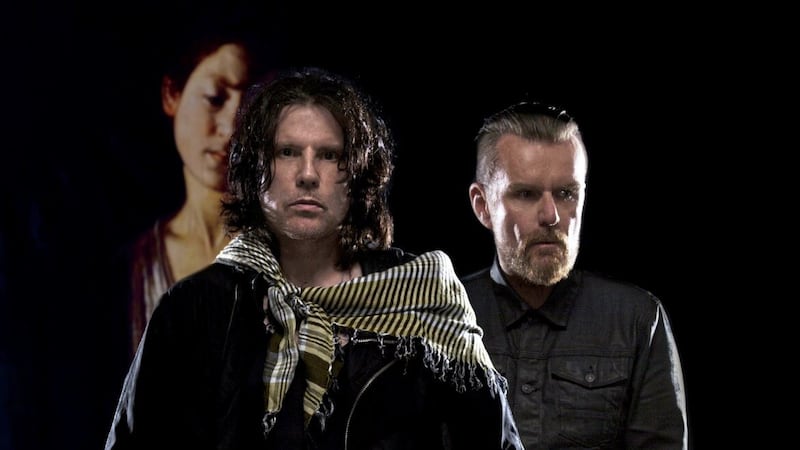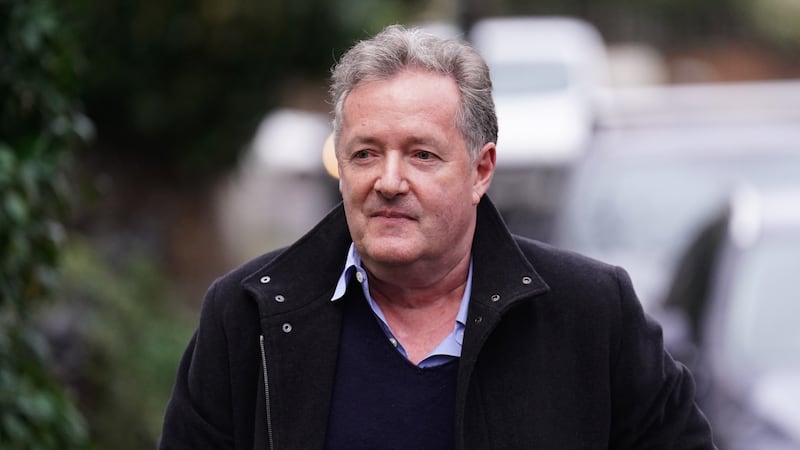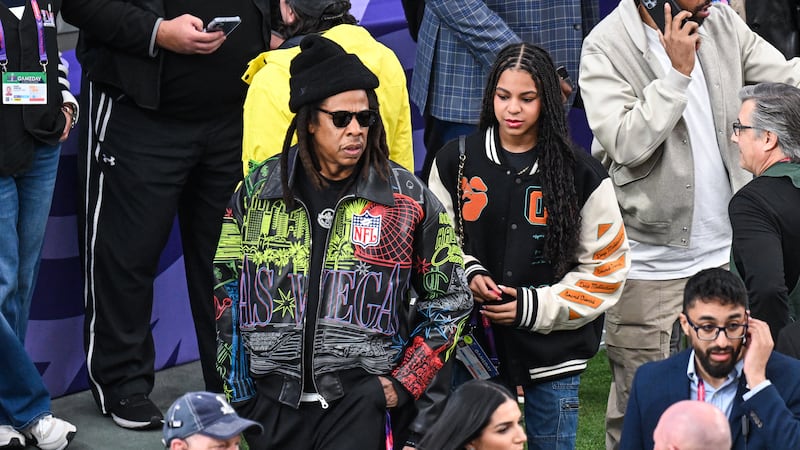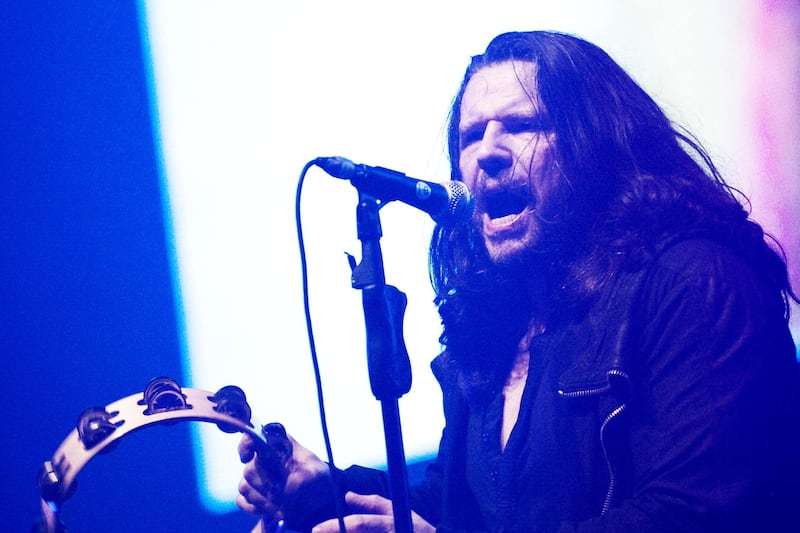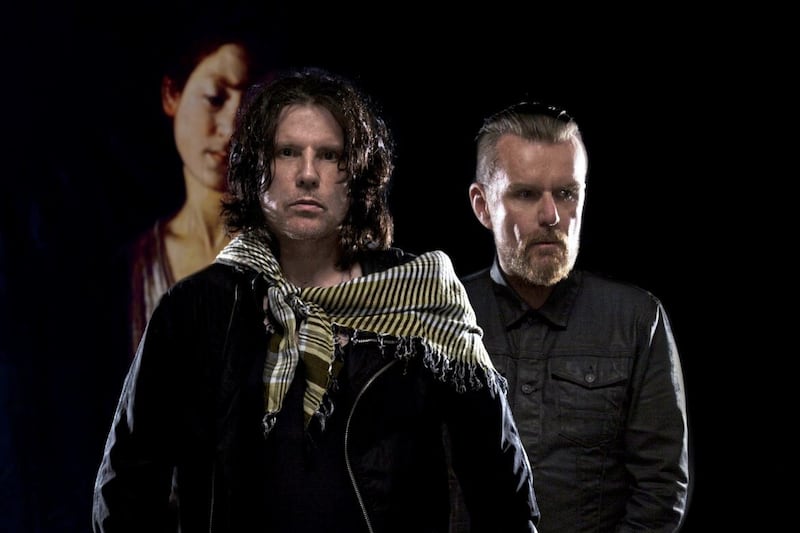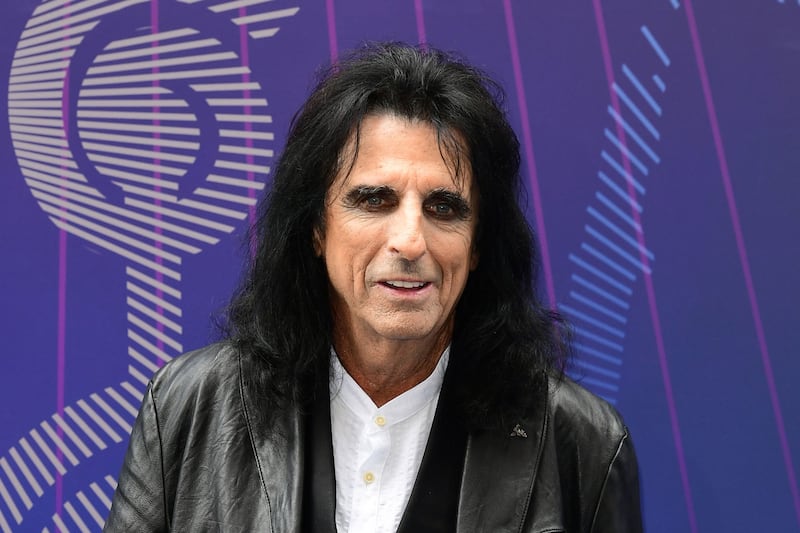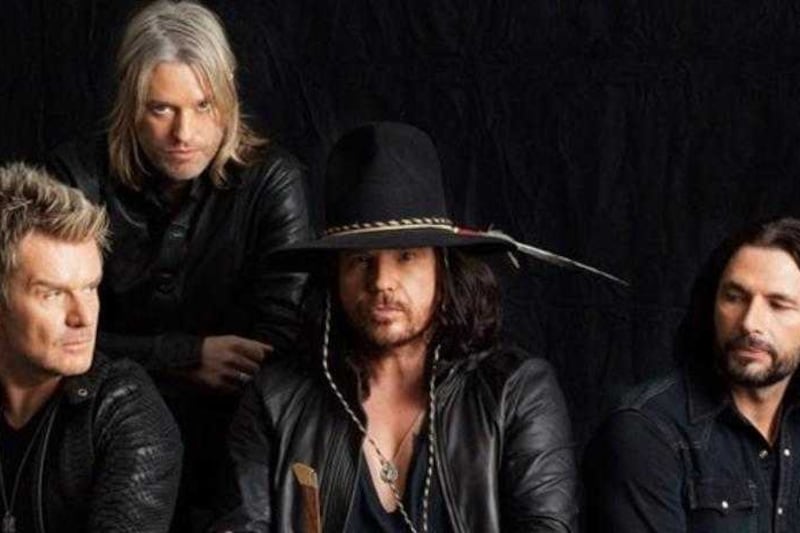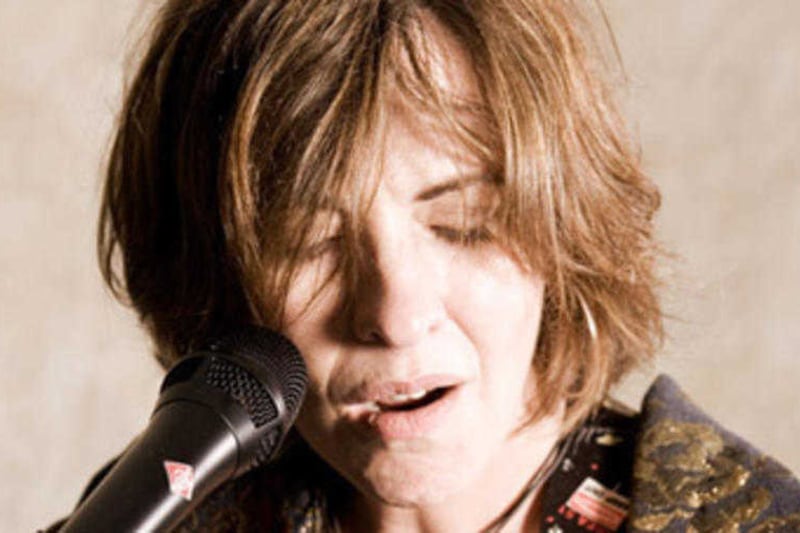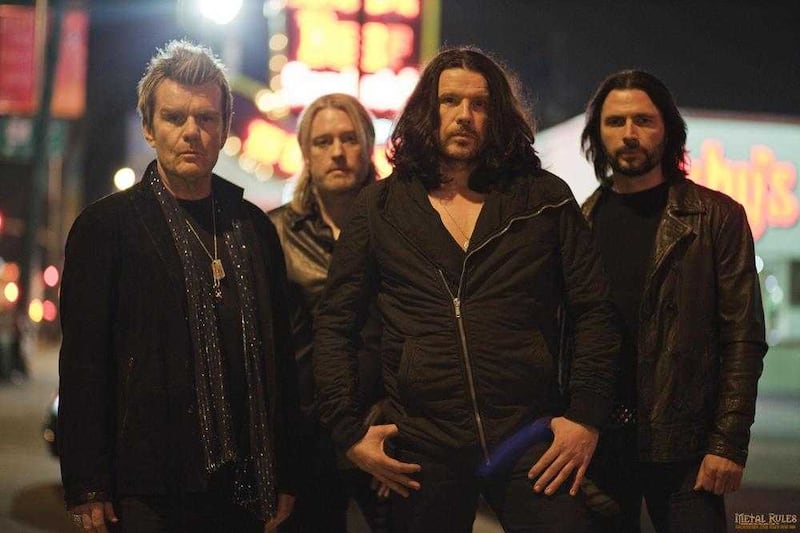"IT WAS a massive adrenal dump," admits Ian Astbury, leader of The Cult, of how it felt to debut his band's new Death Cult 8323 set in Los Angeles last week.
"We'd been building up to it for months and then it went by so quickly – but, emotionally, it was supercharged."
The show at The Ace Hotel's Theatre in Astbury's adopted home city of Los Angeles was the only US date on the new tour celebrating The Cult's earliest material, dating all the way back to the singer's days as the teenage frontman of early-80s Bradford post-punk outfit, Southern Death Cult.
Thanks to all who came to commune with Death Cult in Los Angeles. It was a magical night, and we are happy to have shared it with you. We apologize for some of the merch items running out. You can find all Death Cult merch items here: https://t.co/CoEeAtQBj5 pic.twitter.com/h55Hn01rQ2
— THE CULT (@officialcult) October 25, 2023
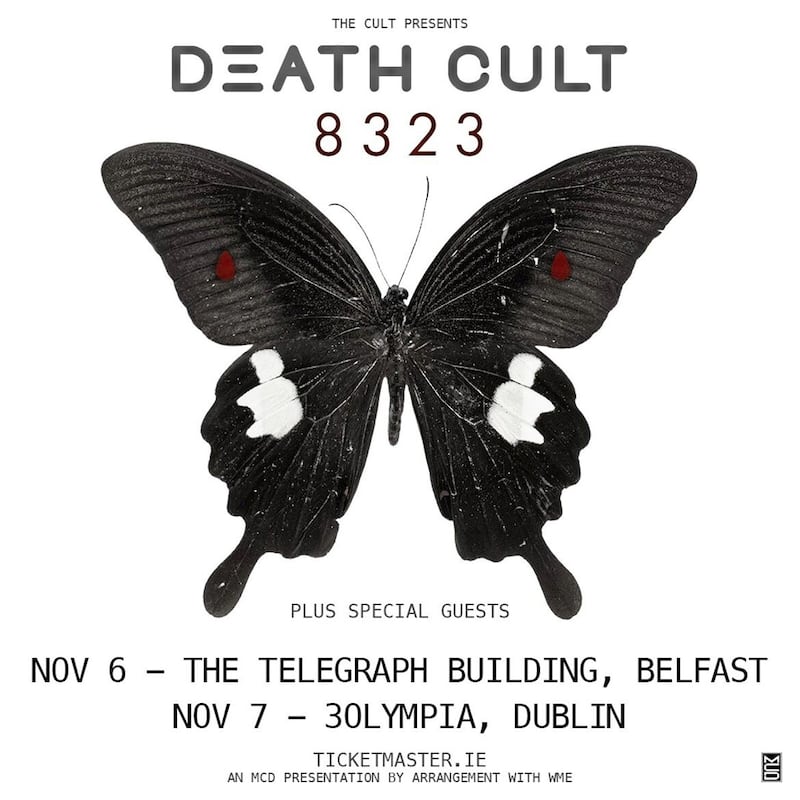
"I don't think of it as a career," says Astbury of The Cult's 40 year journey to date, which includes last year's album Under The Midnight Sun.
"It's been a life journey for me. I don't think I stopped. I started as a kid and just kept rolling. Whatever came next, I rolled with it.
Read more:
- Meditation is where it's at says Ian Astbury of The Cult
- Hidden City sees The Cult return with swagger and attitude
- Alice Cooper and The Cult to co-headline UK tour next year
"I moved around a lot, went to a lot of different schools. I grew up in North America, went back to the UK. There's quite a lot of events that lead up to Death Cult."
Southern Death Cult only lasted for one single before the Cheshire-born singer split, taking part of the name with him to form Death Cult with ex-Theatre of Hate guitarist Billy Duffy – the man who would become his musical foil for the next four decades and counting.
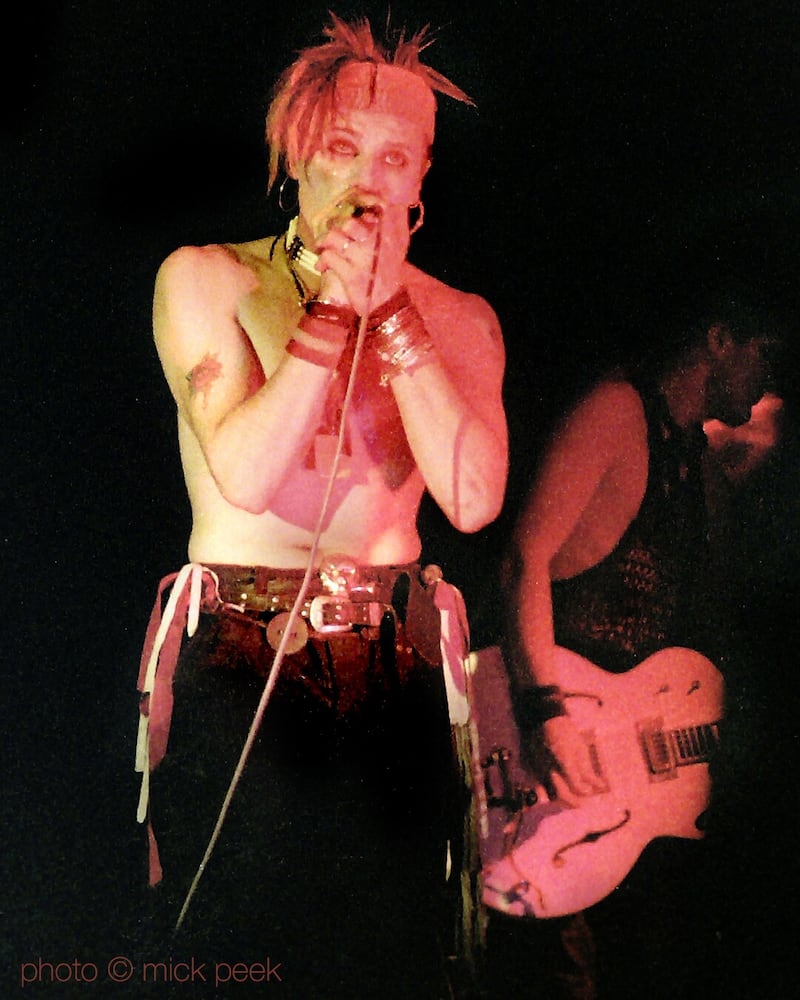
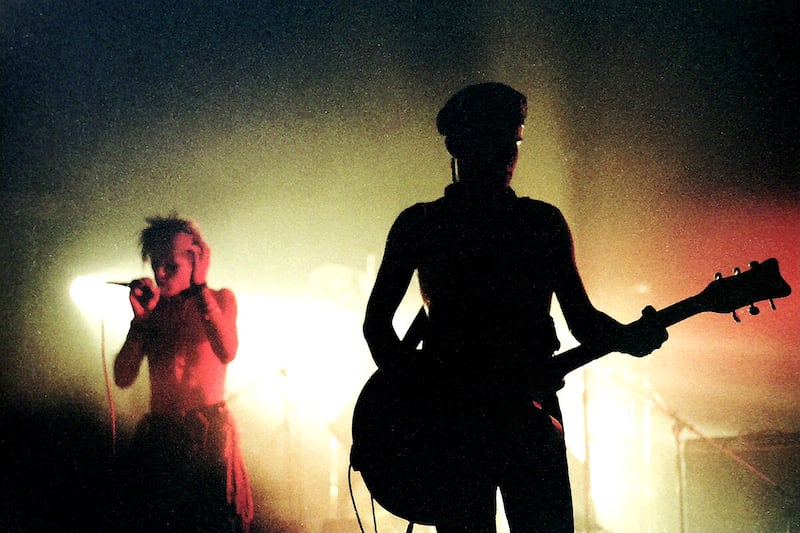
Death Cult re-branded as The Cult in early 1984, a pivotal year which saw them making their TV debut on The Tube, releasing their debut LP Dreamtime and topping the UK indie charts with its superb lead single, Spiritwalker – an early example of Astbury's knack for combining a nascent interest in indigenous cultures and spiritualism with potent rock/pop hooks – and performing their first ever US dates.
The following year's Love album saw Astbury and co moving away from their post-punk roots to embrace some of the rock influences that had been more or less verboten since punk's 'year zero'.
Key anthems like Rain and breakthrough hit She Sells Sanctuary signposted the stadium-ready band that would emerge on 1987's Electric.
Indeed, the band's earliest work may come as something of a revelation for many who only know The Cult as leather-kekked 'rock gods': there's a tangible potency to much of Death Cult's hugely atmospheric material, on which Astbury's trademark vocals were already a force to be reckoned with.
Indeed, in those days he was already writing songs informed by 'heavy' life experiences.
"By the time I got to Death Cult, I was a pretty seasoned human," admits the singer, who lost his mother to cancer just prior to starting the band and had already learned how to survive as a perpetual 'outsider' thanks to family moves between England, Scotland and Canada during his school years.
"I'd had a lot of life experiences, even though I was in my early-20s. A lot of archetypal experiences as well, in the sense of life and death and existential questions, the threat of nuclear war, the threat of environmental consequences from industrialisation.
"We were growing up through all of that, and we still are. But it felt really concentrated in that period."
Perhaps that's why much of the Death Cult material still sounds surprisingly fresh and 'relevant' to today's turbulent times, when early-80s post-punk has once again become so influential on a fresh wave of disaffected young bands.
For Astbury himself, revisiting these songs live has proved to be more than he bargained for.
"It's my lived experience, so these are familiar memories," he tells me, "but it's incredible how visceral they became immediately when we start playing these songs again.
"I felt the actual emotional moment when the songs were created – I felt that as my dominant emotion while singing the songs, and I wasn't prepared for some of that.
"I wasn't equipped as a young person to make sense of how my life was unfolding in front of me. Whereas now I've had a lot more life experience, I can actually look at it and go like 'oh, yeah, I can see how this all went down: understanding my parents' relationship, understanding when both my parents got sick with cancer, understanding the way I was brought up, the schools I went to, the music I listened to.
"I was just intuitively drawn to certain things, whereas now I can actually have a little bit more of a deeper understanding of what was going on, when it comes to [my interest in] the psycho-spiritual realm, especially."
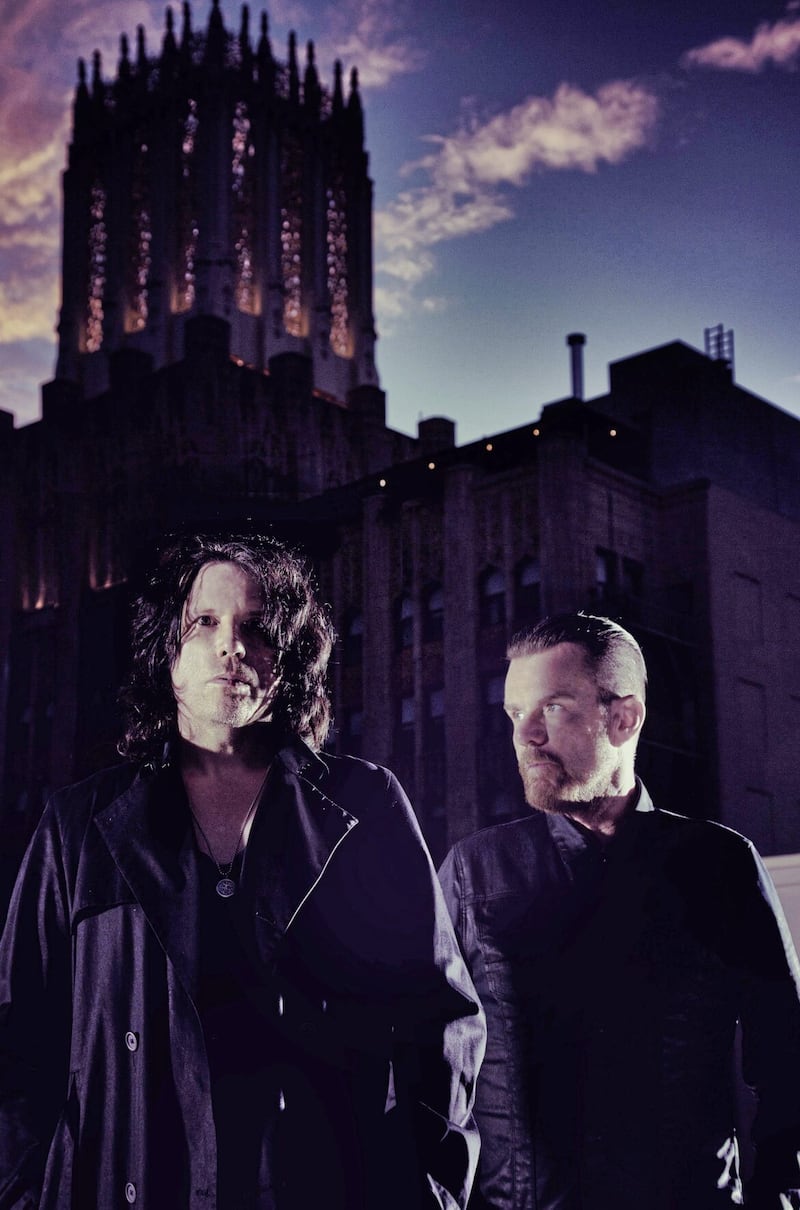
Belfast's early punk scene was also part of Astbury's pre-band life experience: the punk-loving frontman spent time living in a squat on the Newtownards Road after attending Terri Hooley's famous punk festival at the Ulster Hall in 1980.
"A friend of mine asked me if I wanted to go with her to this amazing punk festival in Belfast," explains Astbury, who was then living in Birkenhead and immersed in Liverpool's punk scene.
"I thought it sounded really exciting, so we took the ferry over and she got us some accommodation with some of the punk kids, and we went to the festival.
"Belfast in 1980 was intense. I'd never experienced an environment like that – the army were throwing you up against the wall and beating you with batons.
"But I loved everybody I met in Belfast and hanging out at the Harp Bar. It didn't matter where we were from, because we were all punks."
More recently, The Cult man has discovered a familial link to the city.
"I'm mostly Scots, Irish and Welsh – and my great, great, great grandmother was born in Belfast," reveals Astbury.
"That's so auspicious, because when I went to Belfast, I felt partially at home. I didn't feel alien like I did in Canada – maybe also because the punk community there was so open.
"But I've definitely got a Belfast bloodline now."
The Cult presents Death Cult 8323 at The Telegraph Building in Belfast on Monday November 6 and Dublin's Olympia Theatre on November 7. Tickets via ticketmaster.ie
